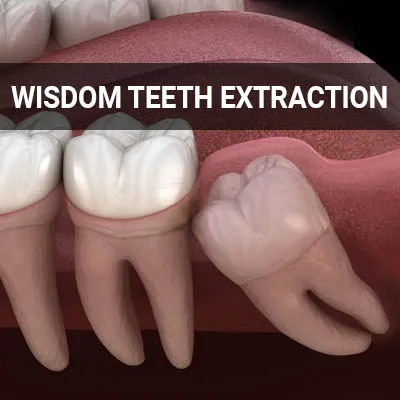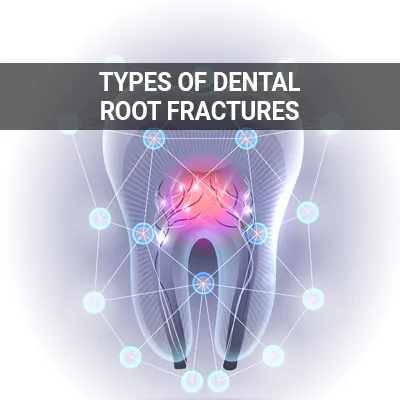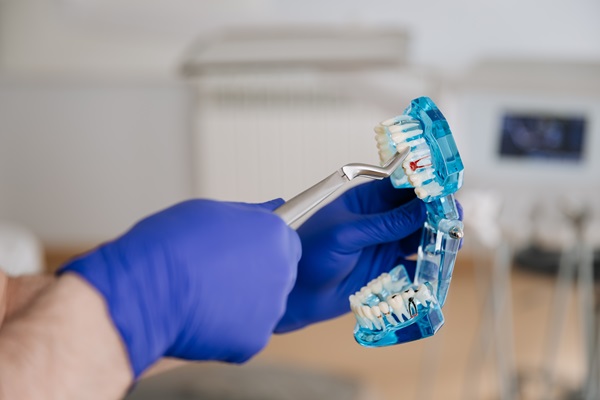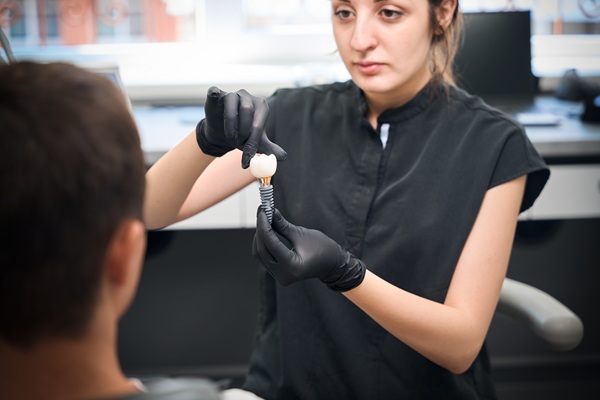Tooth Extraction Alpharetta, GA
Tooth extractions are often a necessary procedure to help maintain a healthy oral cavity and improve oral function. There are many things that may warrant a tooth extraction. Understanding recommended protocol for what to do before, during, and after the procedure can greatly aid in healing. Following a tooth extraction, a variety of tooth replacement options can give patients a fully-restored smile with no extraction sites.
Tooth extractions are performed at Windward Parkway Dentistry in Alpharetta and the surrounding area. We can help you relieve pain and discomforting symptoms caused by a decayed or damaged tooth. Call us today at (770) 814-6224 to schedule an appointment or learn more about our services.
Signs Indicating Need for Extraction
There are various reasons a patient would require a tooth extraction, most commonly involving severely decayed or damaged teeth. Extractions are often a result of impacted teeth, trauma, infection, or risk of infection from another disease or condition. The patient is usually able to notice the signs and symptoms of a compromised tooth. Along with that, a dentist can usually spot indicators during a routine oral exam.
Signs and symptoms that are common in a tooth requiring extraction:
- A loose tooth
- An impacted baby tooth
- Difficulty or pain when chewing
- Jaw pain, soreness, or stiffness
- Spacing or overcrowding issue
- Swollen gums or jaw
- The tooth or gum tissue surrounding a tooth is infected or inflamed
Patients who are experiencing any or all of these symptoms should contact Windward Parkway Dentistry to request an examination. Extractions are typically done in one visit, with recovery taking one to two weeks with proper care.
“Extractions are often a result of impacted teeth, trauma, infection, or risk of infection from another disease or condition.”
Preparing for Tooth Extraction
The first step to getting a tooth extraction is an initial consultation. During this time, patients should go over their medical history with their dentist, along with any other treatments they have planned. They should also tell their doctor about any medications, vitamins, supplements, and over-the-counter drugs they are taking. To ensure the patient's health, our team will take X-rays before the extraction and prescribe the patient antibiotics beforehand if necessary. Patients may be prescribed antibiotics if they have an infection, a weakened immune system, or specific medical conditions. The doctor may also prescribe antibiotics for patients who will undergo particularly long procedures.
Patients should wear loose, short-sleeved clothing on the day of the procedure. Additionally, they should refrain from eating or drinking for six to eight hours and refrain from smoking for 12 hours before their appointment. Patients should notify the office immediately if they have a cold, nausea, or vomiting, as this may necessitate rescheduling or use of a different form of anesthesia than initially planned. Those undergoing general anesthesia should make arrangements to have a trusted adult drive them to and from the procedure.
“To ensure the patient’s health, our team will take X-rays before the extraction and prescribe the patient antibiotics beforehand if necessary.”
What to Expect During Tooth Extraction
Before the procedure, the dentist will inject the patient with an anesthetic to numb the area from which they will be removing the tooth. As a result, patients will feel no pain throughout the extraction. Extraction of an impacted tooth will involve cutting away any gum and bone tissue covering the tooth. Since blood clots usually follow extraction, patients may have to bite down on a gauze pad packed to stop the bleeding. We may also place some sutures over the extraction site to assist in closing the gum edges.
“Before the procedure, the dentist will inject the patient with an anesthetic to numb the area from which they will be removing the tooth.”
Check out what others are saying about our dental services on Yelp: Tooth Extraction in Alpharetta, GA
Post-Extraction Care
Following any extraction procedure, we provide patients with after-care instructions for a safe and fast recovery. The blood clot present after an extraction is intended to keep the site covered and prevent dry mouth or dry socket. Furthermore, the initial gauze placed after the extraction should be kept in the mouth for a few hours to help with forming the blood clot.
After the first few hours, the numbing agent will start wearing off. Patients are prescribed pain killers, antibiotics, and anti-inflammatory medications to alleviate discomfort and help fight infection. It is important to avoid rinsing, spitting, sneezing, smoking, using straws, and blowing the nose until the extraction site has healed. The extraction site must remain clean at all times by changing the gauze and using a saltwater solution. Merely have the saltwater clean the site; do not rinse harshly.
“It is important to avoid rinsing, spitting, sneezing, smoking, using straws, and blowing the nose until the extraction site has healed.”
Questions Answered on This Page
Q. How will my doctor help me prepare for my tooth extraction?
Q. What happens during a tooth extraction procedure?
Q. What are some of the signs indicating a need for tooth extraction?
Q. What should I do after a tooth extraction?
Q. What are possible risks and side effects of a tooth extraction?
People Also Ask
Q. Why is stopping infection from spreading important?
Q. What if a crown or root canal cannot save my cracked tooth?
Q. How do lifestyle choices affect dental health?
Q. How can I prepare for an extraction?
Q. What are some of the reasons one might need a tooth extraction?
Possible Risks and Side Effects
There are general side effects that result after a tooth extraction, such as inflammation, swelling, and pain or discomfort. These symptoms often dissipate on their own over the first few days. However, some cases of extraction can result in complications, and it is a good idea to know them before deciding to undergo an extraction.
One of the most common risks of extraction is dry socket, which occurs when a blood clot does not form or is dislodged, exposing the bone underneath. Dry sockets can delay healing, progress infection, and aid in the development of chronic bone infection or osteomyelitis. Other possible risks of a tooth extraction include the bite collapsing (in cases of more than one tooth extracted), osteoradionecrosis (death of underlying bone), nerve injury, and maxillary sinus exposure (a hole exposing the sinus).
“One of the most common risks of extraction is dry socket, which occurs when a blood clot does not form or is dislodged, exposing the bone underneath.”
Frequently Asked Questions
Q. How long does the pain last after an extraction?
A. Recovering from an extraction varies from patient to patient, but healing time generally lasts from one to two weeks. Pain stemming from the extraction site may be present for the first 48-72 hours, but patients should take their medications as prescribed to reduce pain and aid with healing. Patients experiencing pain that lasts longer than two weeks should immediately call us to schedule a follow-up appointment.
Q. Will I need any other appointments following the extraction procedure?
A. In most cases, we like to schedule a follow-up appointment with all patients who have undergone an extraction. Whether the procedure was minor or severe, blood clots can dislodge without a patient realizing, and other complications may not exhibit signs. During the follow-up, we will check the extraction site, clean it thoroughly, and discuss possible tooth replacement options.
Q. Are wisdom teeth always extracted?
A. Wisdom teeth only need to be extracted when they are impacted, causing pain or pressure, or are pushing inwards to the neighboring teeth. In most cases, these signs are evident when the wisdom teeth first erupt, but they may become apparent later in adulthood as well. We will discuss whether a patient should remove their wisdom teeth when it becomes necessary.
Q. How much do extractions cost?
A. Each extraction procedure is different and will vary in cost. We encourage patients to speak with their insurance provider to better understand their plan and coverage. We can also work with patients to figure out a payment option that works best for them.
Q. What happens if I have a complication after an extraction?
A. Most complications that arise after an extraction can be treated. In cases of dry socket, we can thoroughly flush out the infection and apply a medicated dressing to seal the hole. For other complications, there may be a treatment or surgery that follows to treat the condition and keep the oral cavity healthy.
Dental Terminology
Learn More Today
For many patients, tooth extraction can help reverse the damage done by trauma and decay. We at Windward Parkway Dentistry may be able to help. Call us today at 770-814-6224 to learn more and schedule an appointment.
Helpful Related Links
- American Dental Association (ADA). Glossary of Dental Clinical Terms. 2024
- American Academy of Cosmetic Dentistry® (AACD). Home Page. 2024
- WebMD. WebMD’s Oral Care Guide. 2024
About our business and website security
- We accept the following payment methods: Cash, Check, Discover, MasterCard, and Visa
- We serve patients from the following counties: Fulton County
- We serve patients from the following cities: Alpharetta, Bethany Crossing, Herring Township, and Milton
- Norton Safe Web. View Details
- Trend Micro Site Safety Center. View Details
Back to top of Tooth Extraction











